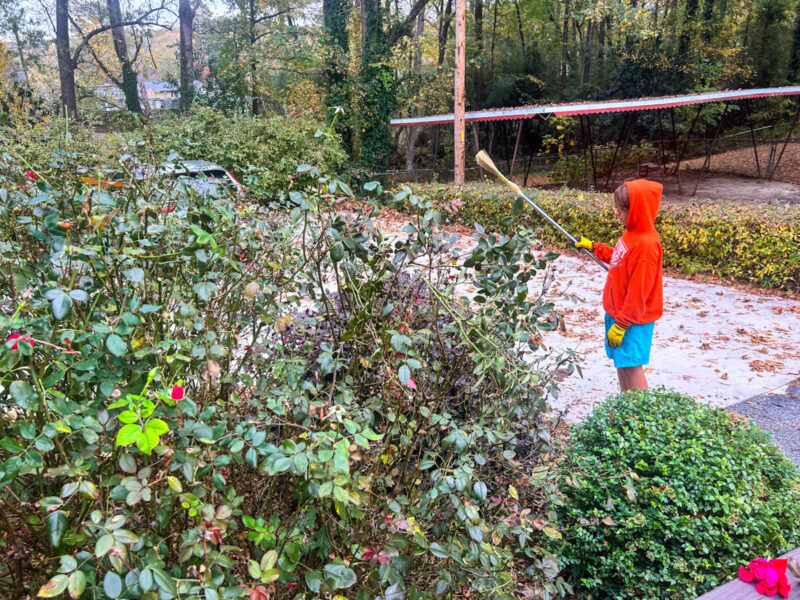
Sunday Baking


We only have so much time together as a family of four. L will graduate in a few short months, and then her time in our house will be limited to summers. I expect that soon enough, she won’t be staying with us the entire summer. She’ll be twenty, twenty-one years old. She’ll have her own life. She’ll have her own priorities. She’ll have a job that she’ll want to continue working over the summer. Or she’ll have some internship or other. So these evenings are rare.
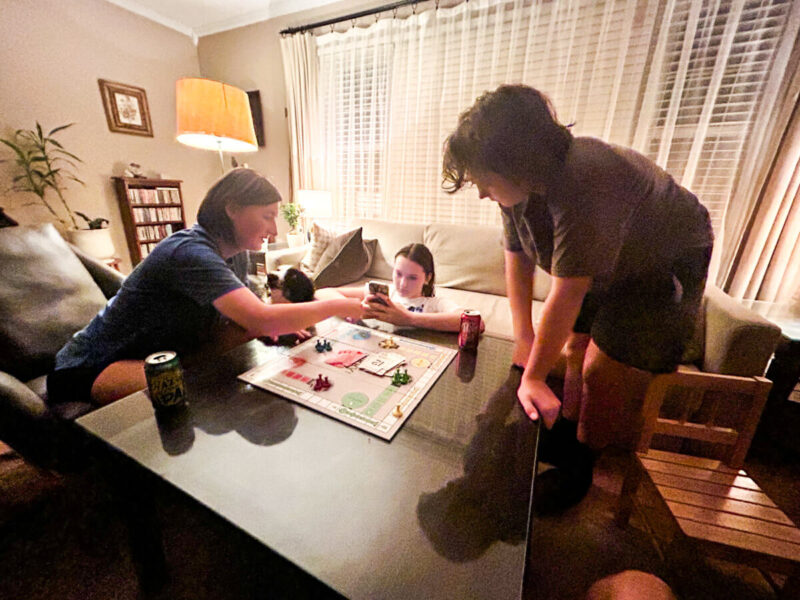
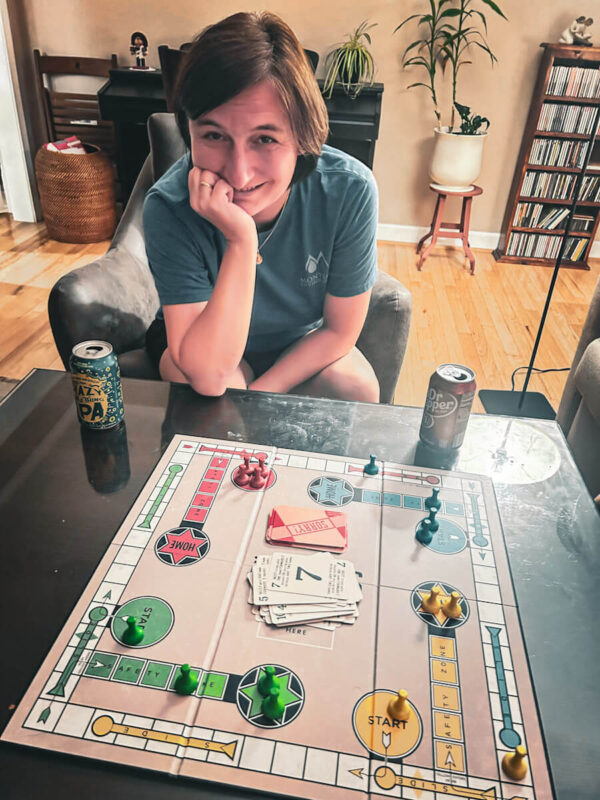
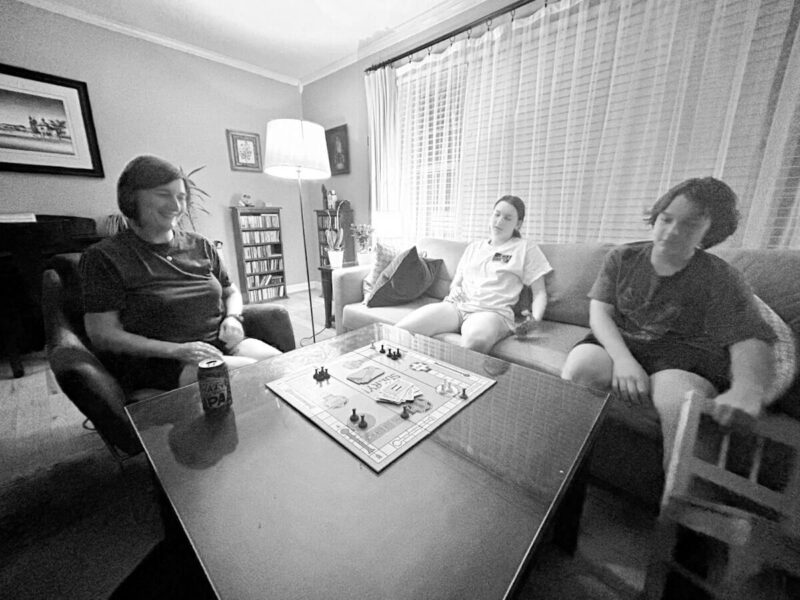
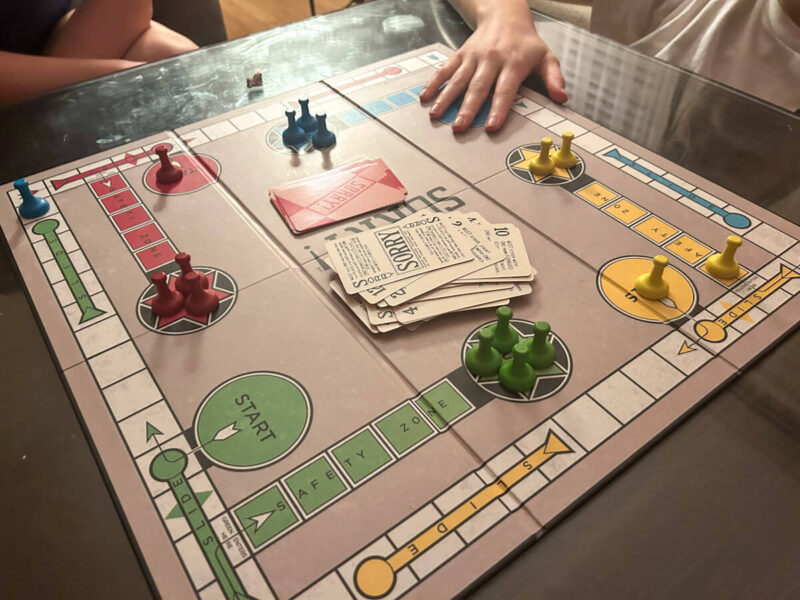
Some things have, of course, changed, but for poor K, nothing has changed. She always has the absolute worst luck in board games. When we play Monopoly, we call her (and she calls herself) the Slum Lord because she can never manage to get anything other than the very cheapest of properties, and the three of us end up bankrupting her in fairly short order. Tonight’s game of Sorry was no exception. But one other thing stayed the same: we all laughed heartily about it.
Laughing as a family — few things are more precious.
Here in South Carolina, we’ve grown paranoid about what books students might be reading in school. These books might be exposing our children to horrid ideas that could shake the very foundation of our state, of our country. Ideas like, “Gay people exist.” Notions like, “White people in the past did some very bad things to black people.” Ideas such as, “Horrible things like sexual assault happen,” or “Teens sometimes commit suicide.” We aren’t quite to the point that the notion that “Jews suffered terribly during World War Two” is controversial, but just give us time!
To prevent students from being exposed to books that might in turn expose them to such awful, harmful notions, South Carolina teachers now have to make a list of every single book, article, poem, Power Point presentation, Excel spreadsheet, Google Doc, video clip, painting, sculpture, and any other artifact we haven’t thought yet to add to that list. The list is to be available to anyone (not just any parent of a student in that class; to anyone in the state) so that if anyone has a problem with those materials, they can lodge a formal complaint and work to have that material banned. It’s not just that parents of students in a given classroom can do this; anyone can protest a book, even if they don’t have children in the school in question. Or children at all.
It’s a wonderful time to be an English teacher in South Carolina.
Recently, parents presented three books to be banned. This happened at the State School Board office (none of those positions on the board are elected positions — they’re all appointees from the governor) at 11:00 a.m. on a Thursday. A great time to have an open discussion about the merits of this or that book.
The first book they were considering banning was To Kill a Mockingbird. This is not because of the growing complaint that it presents a skewed view of the African American experience by making it a story of “a white man saves the day!” It’s always been curious to me how we could tell that story without the defense lawyer being a white man: African American lawyers deep in the Jim Crow South were not exactly that numerous. But that was not the potential-book-banner’s complaint. The complaint is the sexual assault that occurs in the book. Except that it doesn’t occur. And that’s the whole point of the book. Still, they made their case before the board.
The second book that some wanted banned was Romeo and Juliet. This was due to the supposed sexual content and the suicide at the end. It is of course silly to suggest that he book in any way promotes suicide, but that was the complaint.
I was anxious about this: These two selections represent the majority of my second-semester work with my honors students. “They are banned, I have no second semester,” I told anyone who’d listen. I decided if they got banned, I’d just do Lord of the Flies instead of Mockingbird. It’s already on our vetted list for our school. (That’s another joy: all novels we read in school must be vetted. Who does the vetting? The school district that recommends it? No — teachers who are told to teach it. “That way,” they cleverly explained, “if it gets challenged in one school, it’s not necessarily challenged everywhere.” I just think they wanted us to do their job for them.) As for Shakespeare, I thought I’d do a greatest hits type unit: I can teach excerpts without the vetting process (though I do still have to list it on my “List of things you might get nervous about” document).
The third book was one that I’ve never taught because our district reserves it for senior year in high school: 1984. That’s right: they wanted to limit access to a book about a totalitarian regime that limited access to information. That’s ironic enough, but one of the reasons someone protested was because — you’re probably not ready for this level of complete and utter ignorance — it’s pro-communist. That’s right: 1984, banned in the Communist Soviet Union, is pro-communist. “Tell me you’ve never read the book without telling me you’ve never read the book,” was the common response among English teachers in our school.
In the end, though, the board was reasonable and declined to ban any of those books. And I can’t believe I just used the word “reasonable” to describe a very basic tenet at the foundation of our constitution.
But it is a temporary victory: those board members can be replaced, and as previously explained, they’re not elected. They’re appointed. And given South Carolinians’ current MAGA-happy political orgasm (a very deliberate word choice: you did see the footage of Trump simulating fellatio with a microphone stand at one of his final rallies, didn’t you?), members of that board are likely to be increasingly conspiratorially minded and less reasonable with each appointment.
It’s a wonderful time to be an English teacher in South Carolina.
I forgot to post this…
And given how I feel tonight, I just thought posting something positive was the way to go.
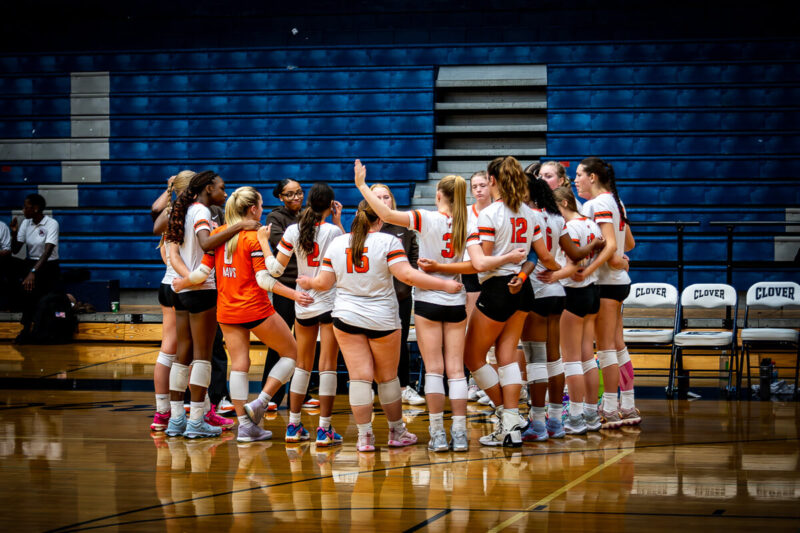
Tonight, L’s volleyball career ended. She won’t be playing in college, and we’ve all decided to use the money we would have put toward a final club season to other uses (like adding some time in Greece this summer for her senior trip). So six years of volleyball came to an end in the second round of playoffs against a team from Clover, South Carolina.
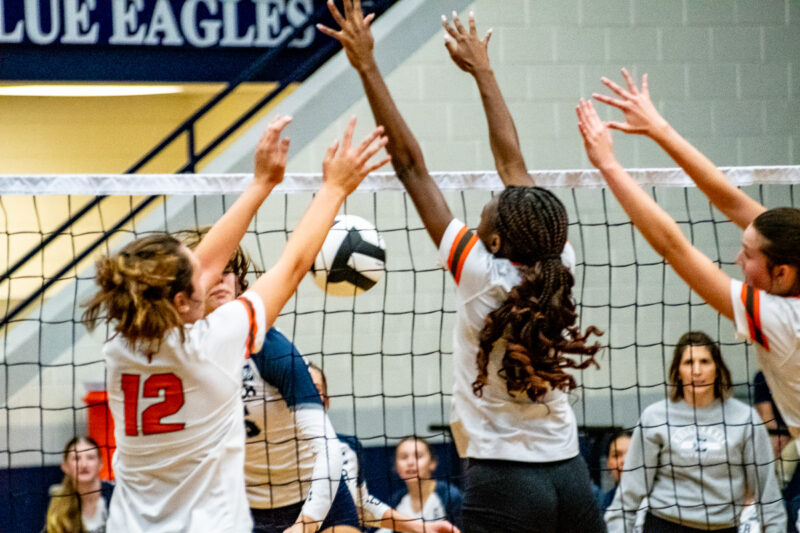
We’ve passed the exit to Clover countless times over the years. It’s just before the turn off highway five to Aunt D’s house — Aunt D, who helped take care of both Nana and Papa, who has a heart that gives endlessly. We commented often on how funny it was that there was a town named after our dog. Strange how these little turns appear unexpectedly in our lives: L’s final game in a town we’ve known and had a private joke about for years but which we never would have imagined visiting.
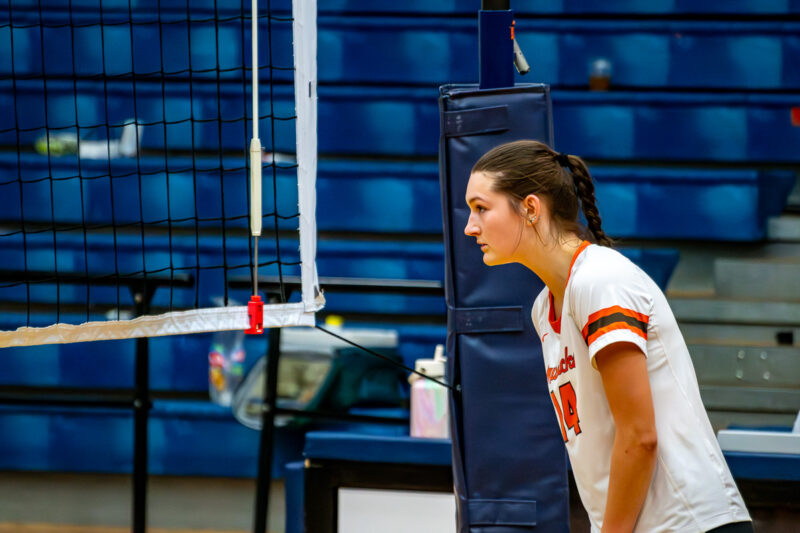
In a sense, that’s been the common theme of L’s volleyball career. To begin with, when she mentioned in sixth grade that she wanted to try out for the middle school volleyball team, I was a little surprised. She’d played soccer at the Y as a kid, but she wasn’t interested in continuing it. If she devoted her free time to anything, I would have, back then, assumed it would have been dance. She always seemed a bit more showy than athletic as a young child. But once she made her decision to try out for the team, nothing could stop her. Not even not making the team the first year. If anything, that increased her determination.
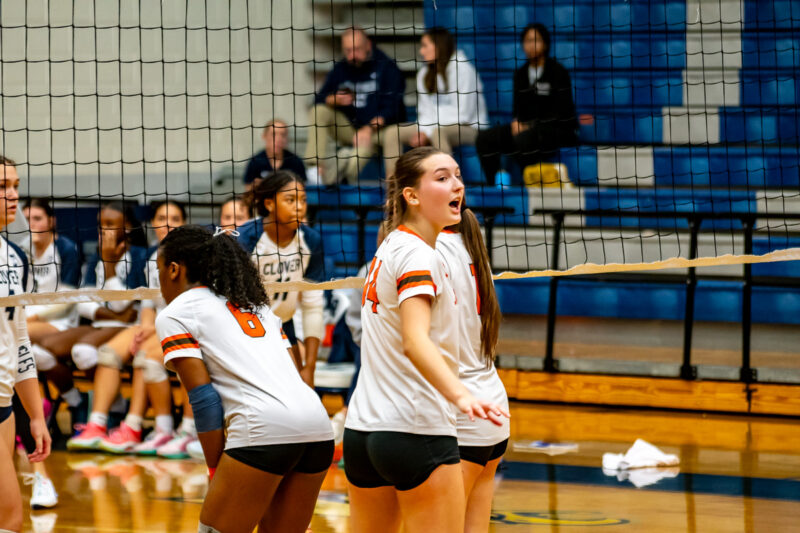
Once she became obsessed with volleyball, I never would have imagined she could be part of a state championship team. Such occurrences are fairly rare: one has to be at the right place (or rather, on the right team) at the right time. But two years ago (almost to the day), her high school team took the state championship.
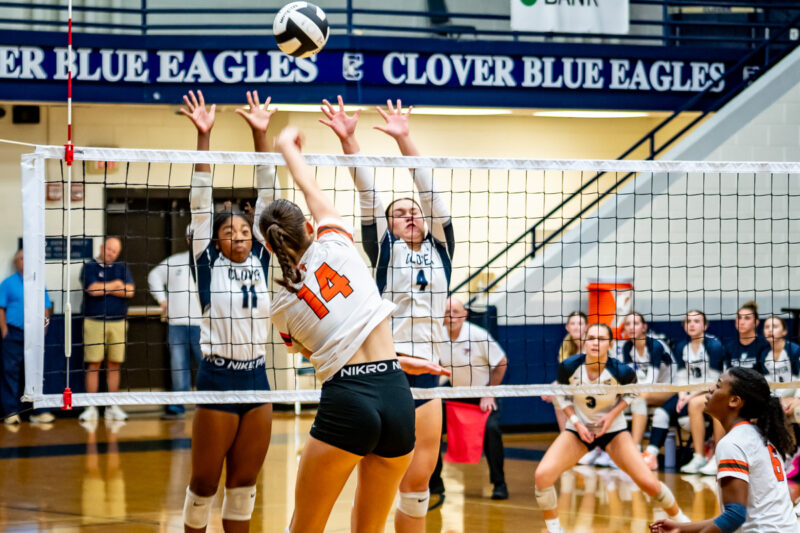
There was a time it seemed unimaginable that she wouldn’t play volleyball in college. She seemed so dedicated to it, and she was improving by leaps and bounds each year. But it was not to be: she didn’t get any interest from any of the colleges she wanted to attend, and she made the decision that she wouldn’t choose a college just because she could play volleyball there.
Of course, there were the initial expectations about this year. “We’re not going to win any games this year!” she declared after the first few practices and warm-up tournaments. And it seemed like they wouldn’t be able to get their game together, but the did. And they finished second in the region.

They got further than they ever expected; they achieved more than they thought they could. But that last game — it was tough to go out like that. They just couldn’t get things together, achieving the same dismal results in the first two sets: 14-25. I thought they’d fall apart completely in the third set, but they got themselves together and took the game to a fourth set with a 28-26 win in the third. In the fourth set, they had the same trouble they had in the first two sets and lost 17-25.
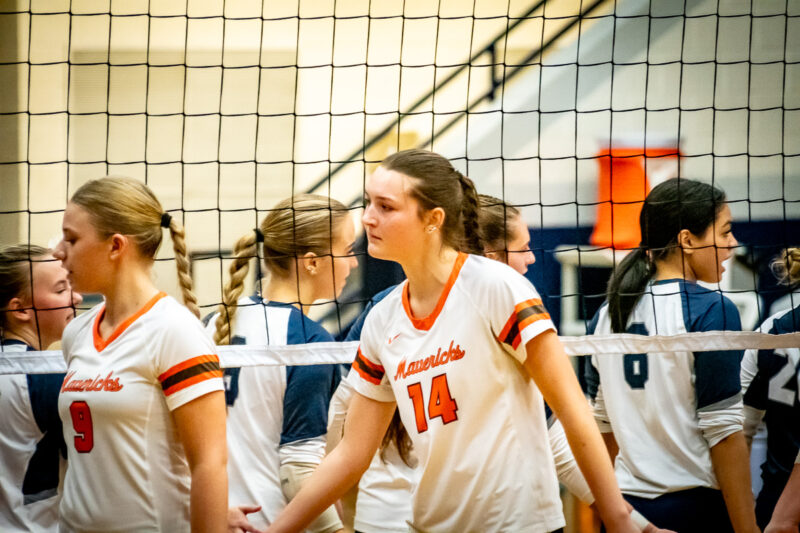
It was a tough way to end a wonderful six years of volleyball, and the Girl had difficulty holding back the tears. She broke down after last year’s final game as well. She said it was out of sadness for losing the seniors: “It’s the last time I’ll play with them.” I think in the back of her head, though, she knew in a year it would be her turn. She wants to put herself forward as a no-nonsense type of kid, but I think she’s got just a little of my sentimentality in the mix.
The choice is stark.
